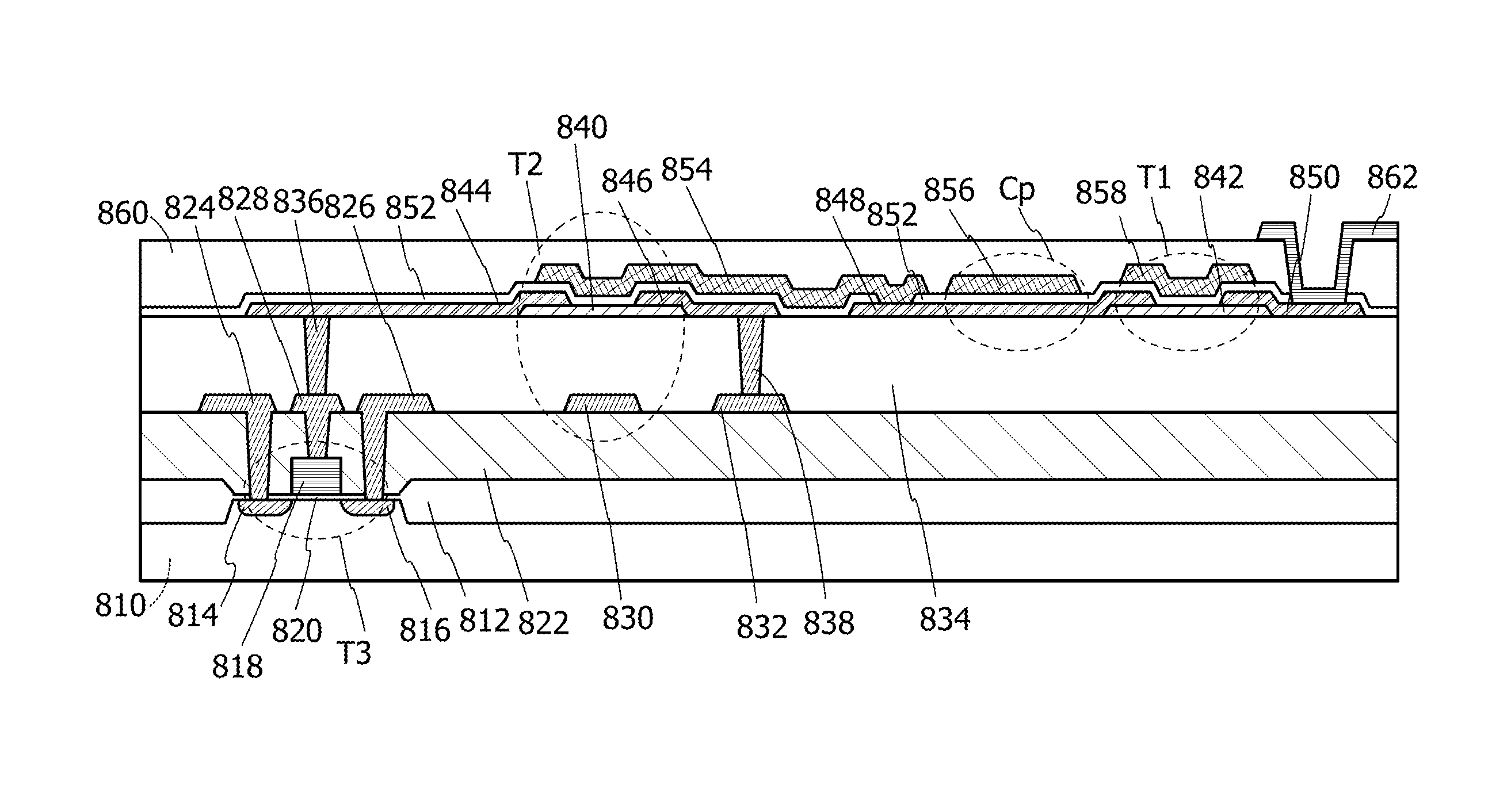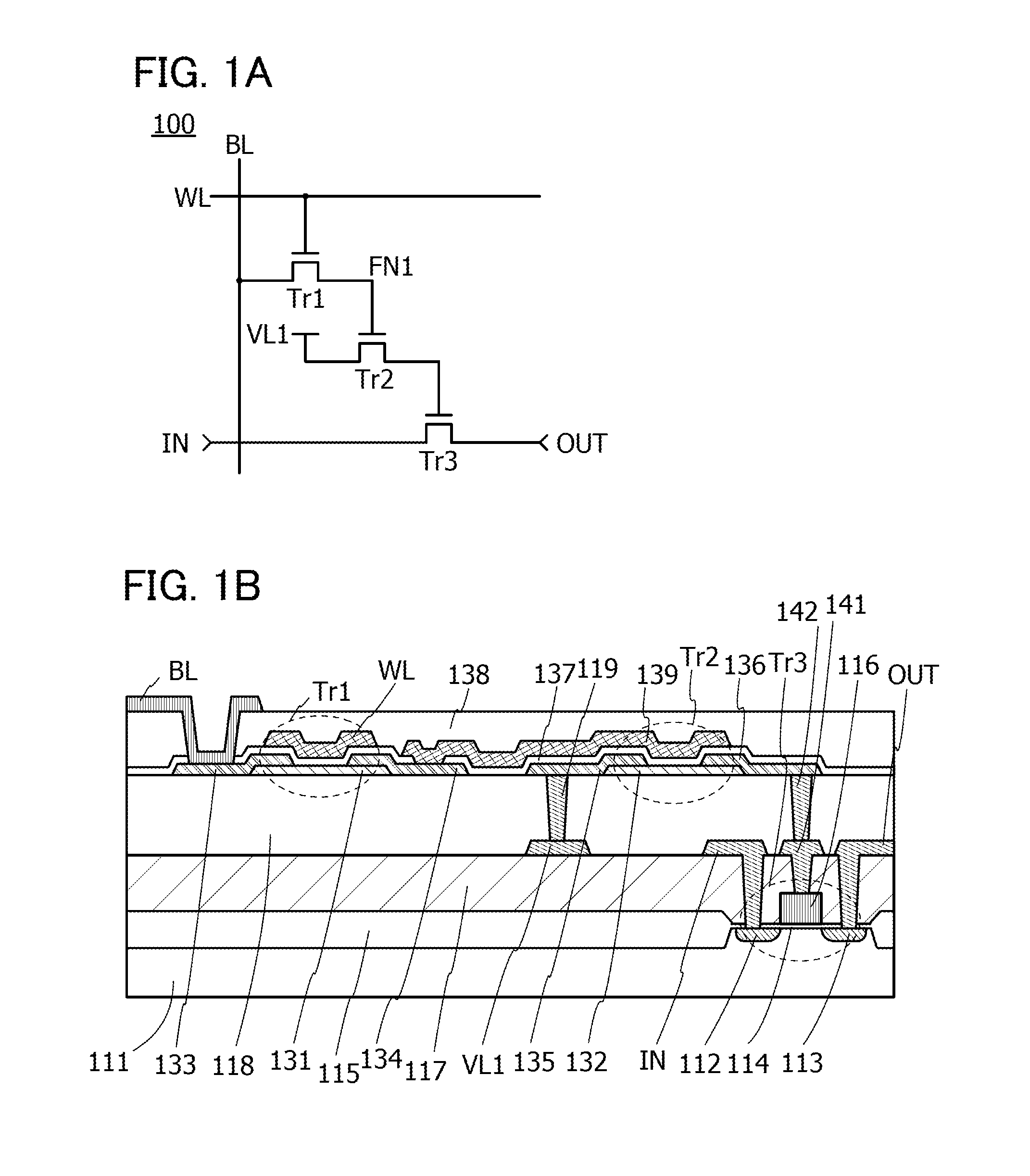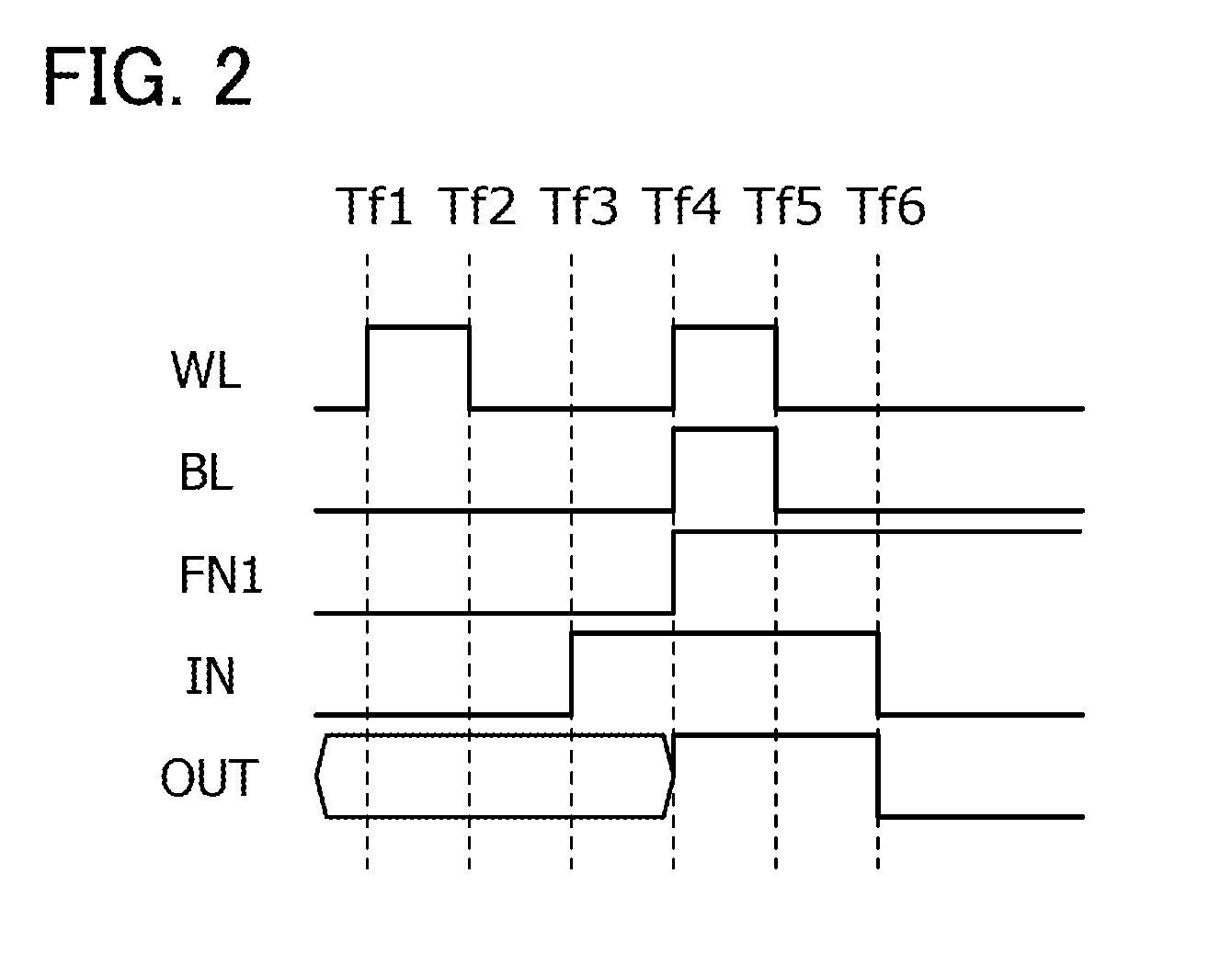Semiconductor device
a technology of semiconductors and nodes, applied in the field of semiconductor devices, can solve the problems of leakage current through gate insulating films, deterioration of charge retention characteristics of nodes, etc., and achieve the effects of preventing an increase in the area occupied by memory cells, excellent charge retention characteristics, and high area efficiency
- Summary
- Abstract
- Description
- Claims
- Application Information
AI Technical Summary
Benefits of technology
Problems solved by technology
Method used
Image
Examples
embodiment 1
[0083]In this embodiment, a structure of a programmable switch element will be described.
[0084]FIG. 1A is a circuit diagram illustrating the structure of a programmable switch element. FIG. 1B is a cross-sectional schematic view corresponding to the circuit diagram.
[0085]A programmable switch element 100 illustrated in FIG. 1A includes a transistor Tr1, a transistor Tr2, and a transistor Tr3. Note that the transistors Tr1 to Tr3 are n-channel transistors in FIG. 1A.
[0086]The transistor Tr1 has a function of controlling writing of configuration data into the programmable switch element 100 in accordance with a word signal. A gate of the transistor Tr1 is connected to a word line WL for applying a word signal (wiring). One of a source and a drain of the transistor Tr1 is connected to a bit line BL for applying configuration data (wiring).
[0087]The transistor Tr2 has a function of controlling the on / off state of the transistor Tr3 in accordance with configuration data written into the ...
embodiment 2
[0151]In this embodiment, a structure of a programmable switch element different from those in Embodiment 1 will be described.
[0152]FIG. 6A is a circuit diagram illustrating the structure of a programmable switch element. FIG. 6B is a cross-sectional schematic view corresponding to the circuit diagram. Note that in this embodiment, components common to Embodiment 1 are denoted by the same reference numerals and the description is omitted in some cases.
[0153]A programmable switch element 200A illustrated in FIG. 6A includes the transistor Tr1, the transistor Tr2, the transistor Tr3, a transistor Tr4, and a transistor Tr5. Note that the transistors Tr1 to Tr5 are n-channel transistors in FIG. 6A. The circuit diagram in FIG. 6A of this embodiment illustrates a structure where the transistors Tr4 and Tr5 are added to the structure in FIG. 1A of Embodiment 1.
[0154]As in FIG. 1A of Embodiment 1, the transistor Tr1 has a function of controlling writing of configuration data into the progra...
embodiment 3
[0214]This embodiment will show a structure example of a PLD, a structure example of a programmable logic element, and a layout example of circuits included in a PLD.
[0215]FIG. 11A illustrates an example of a programmable logic element (PLE) 40. The programmable logic element 40 illustrated in FIG. 11A includes a look-up table (LUT) 41, a flip-flop (FF) 42, and a configuration memory (CM) 43. Logical operation of the LUT 41 is determined in accordance with configuration data in the configuration memory 43. Specifically, one output value of the LUT 41 with respect to input values of a plurality of input signals supplied to input terminals 44 is determined. Then, the LUT 41 outputs a signal including the output value. The flip-flop 42 holds the signal output from the LUT 42 and outputs an output signal corresponding to the signal from a first output terminal 45 and a second output terminal 46 in synchronization with a clock signal CLK.
[0216]Note that the programmable logic element 40 ...
PUM
 Login to View More
Login to View More Abstract
Description
Claims
Application Information
 Login to View More
Login to View More - R&D
- Intellectual Property
- Life Sciences
- Materials
- Tech Scout
- Unparalleled Data Quality
- Higher Quality Content
- 60% Fewer Hallucinations
Browse by: Latest US Patents, China's latest patents, Technical Efficacy Thesaurus, Application Domain, Technology Topic, Popular Technical Reports.
© 2025 PatSnap. All rights reserved.Legal|Privacy policy|Modern Slavery Act Transparency Statement|Sitemap|About US| Contact US: help@patsnap.com



